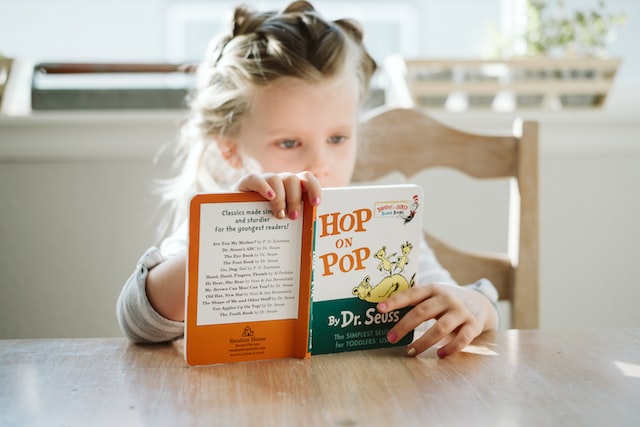What is the best age to learn how to read? This is a question that, among other factors, depends on children’s acquired abilities and maturity. Rushing or pressuring them can be counterproductive and even generate frustration.
The first requirement is that children have a basic command of language. That is, they must be able to speak and understand what they hear. Maturity is another aspect to be considered, since the child may not be able to assimilate this type of learning. Therefore, learning to read requires an adequate psychological and cognitive development to start this process.
From the beginning of the first sounds until they are able to achieve clarity of expression, some time must pass. How long this period lasts depends on each child. Written language requires a high intellectual development and the child must be able to cope with it.
Young children learning to read is one of the most important things primary education does.
Dominic Wyse, professor of primary education at University College London
The environment where children are exposed to language, how conducive it is to foster learning or not, plays a crucial role in their development. Dominic Wyse, a professor of primary education at University College London, and sociology professor Alice Bradbury, also at UCL said in a 2022 report that in the UK, English school system’s intense focus on phonics – a method that involves matching the sound of a spoken word or letter, with individual written letters, through a process called “sounding out” – could be failing some children.
1. Minimum age for learning how to read?
From three to five years of age, the first contacts with written language can take place. Games, drawings, knowing some letters or words -such as names- can awaken the child’s interest in written language. Recognizing some signs and starting to handle a pencil is more than enough at that age.
It is usual to initiate the child in literacy activities at the age of six. Depending on the child’s abilities at that time, it could be earlier. The issues to take into account for a child to start learning to read are:
- Motor coordination.
- Visual organization.
- Wide vocabulary.
- Ability to listen.
- Interest in learning.
2. Motivation
Motivation is a responsibility of parents and teachers and is the determinant for the achievement of the objectives. The important thing is that the child does not feel pressured. Around the age of five, the child is able to adapt to routines, develop social skills, play and work in groups. Everything can be achieved, but without impositions.
Imitation is a common practice in children. They may become interested in reading or writing when they see their elders doing it. They will even be able to recognize and try to reproduce the letters of their name or write a letter to grandparents or a friend.
3. Early stimulation?
In today’s world everything is moving faster. This is an era of constant stimulation, getting earlier every day. However, bringing certain processes forward can be counterproductive. Frustration can set in and trigger comprehension and expression problems that manifest themselves around the age of 12.
Moving from oral to written language involves a leap. From one sound after another, one sign after another; this can be confusing and too abstract for the child. As a consequence, bringing the processes forward may demotivate the child. Both the traditional and constructivist methods set three years of age as the starting period for grapho-motor skills. This practice of writing movements or teaching words is applied from the period of infant education.













